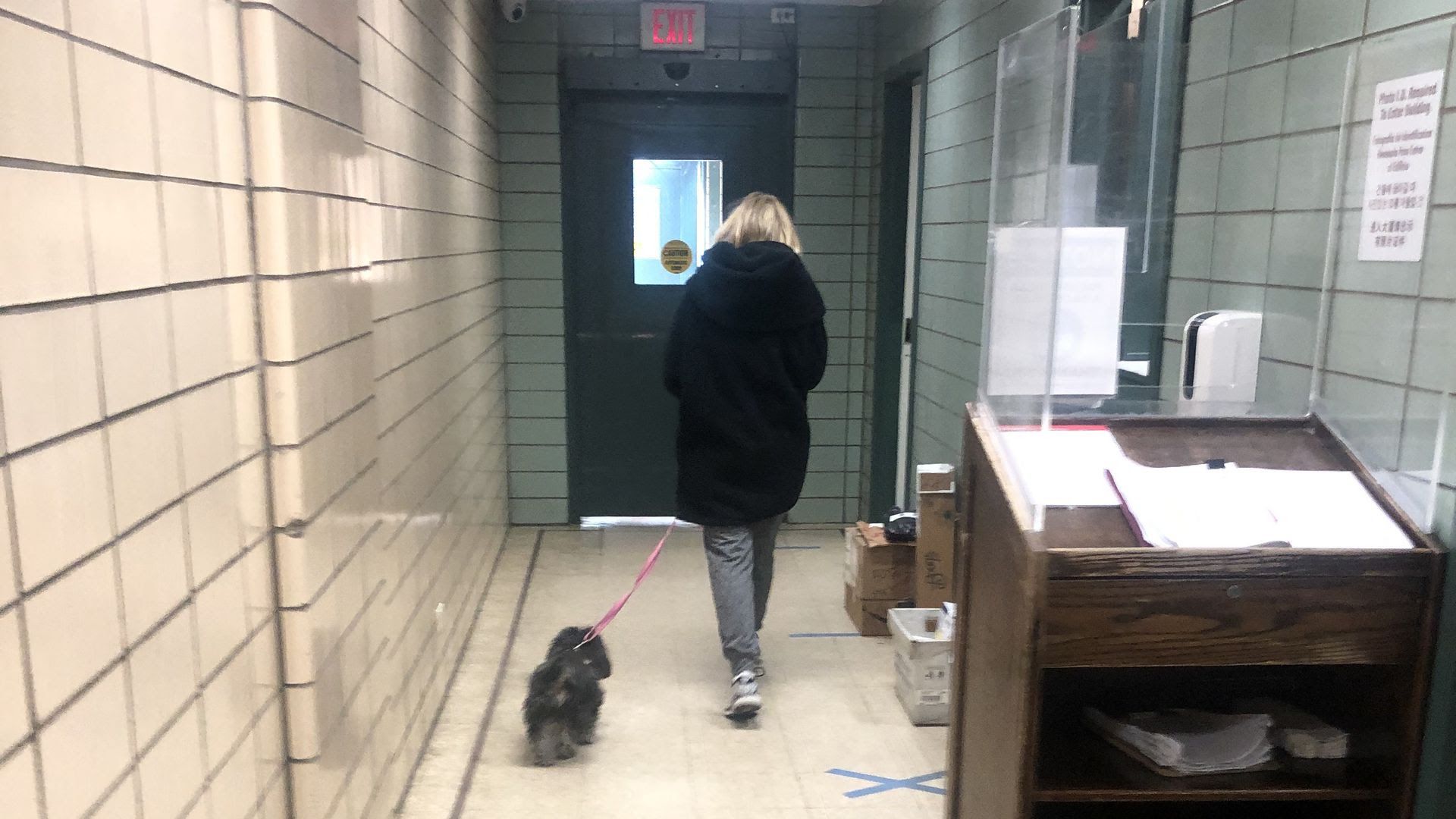Pandemic brings new clashes over emotional support dogs
Add Axios as your preferred source to
see more of our stories on Google.

In my "no dogs allowed" apartment building, emotional support animals are permitted for people with doctor-validated disabilities. They're supposed to use the service entrance, seen here. Photo: Jennifer A. Kingson/Axios
With people adopting pandemic puppies in droves, "emotional support" dogs are suddenly everywhere they're not supposed to be — like restaurants, supermarkets and retail stores.
Why it matters: The rule-flouting is a strain on merchants, who fear lawsuits from certificate-waving dog owners, and on people with actual service dogs — which, unlike emotional support animals, are trained to perform vital tasks for their owners.
Where it stands: Although the Department of Transportation ruled in December that airlines no longer have to let emotional support animals (ESAs) on planes, HUD still considers them "assistance animals" — which means that landlords have to permit them in no-pets apartment buildings.
- But ESAs are not service animals — and aren't covered under the ADA.
- Nevertheless, lots of websites help pet lovers get doctors' notes that they can use to flout the rules.
- People are snapping up official-looking "service dog" vests on Amazon and using them to trot their puppies anywhere they like.
Driving the news: Landlords, desperate to fill apartments that have emptied during the pandemic, are being more lenient about allowing emotional support dogs — setting up clashes among residents.
- Readers have been writing to me about unfortunate encounters with ill-behaved ESAs and their indignant owners.
- Although ESAs aren't allowed in supermarkets or restaurants, shopkeepers are reluctant to kick out patrons' dogs for fear of making a scene or getting sued.
- "I really want to advocate for business owners — they feel trapped and like they’re unable to protect themselves," says Sarah Schaff of Can Do Canines of Minnesota, which trains service dogs for people with disabilities.
- There are two questions that merchants can ask to suss out legitimacy, Schaff tells Axios: "Is this a service dog?" and "What task is the dog trained to help you to do?"
How it works: The growing prevalence of ESAs is distracting for legitimate service dogs — and difficult for people who have allergies or dog phobias, or who come from cultures with aversions to dogs.
- "This really delegitimizes highly trained service animals and makes things difficult for the people who rely on them," says Cassandra L. Boness, a clinical psychology intern at the University of Pittsburgh Medical Center, who published a paper saying tighter ESA rules are needed.
- "People see these dogs parading around in vests acting foolish or getting into trouble," Boness tells Axios. "It's a mess."
What's next: More college students are demanding to keep ESAs in their dorm rooms — and, as people return to their workplaces, some seek to bring their emotional support doggies with them.
My thought bubble: There were perhaps zero dogs in my no-pets apartment building in Manhattan until a year or so ago, when the floodgates opened.
- Some neighbors — including the owners of Oscar, the barky beagle mix downstairs — admit freely that, wink-wink, he's just a cherished family pet.
